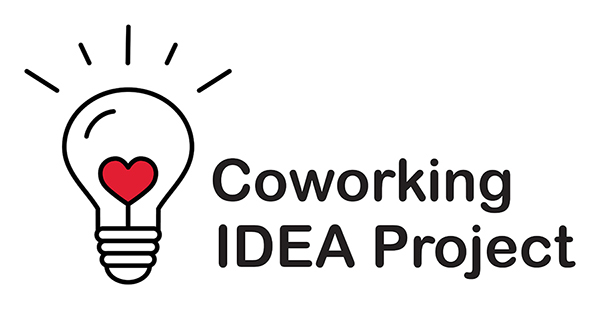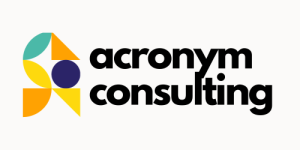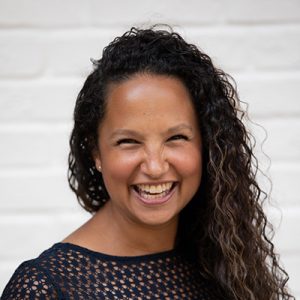Back to the Basics: Interrupting Unconscious Bias
May’s IDEA Challenge is facilitated by Kerry Cavers.
The IDEA Project is a global initiative aimed at developing Inclusivity, Diversity, Equity and Accessibility (IDEA) within coworking and collaborative spaces. Each month, we will host a challenge that assists you in broadening your understanding of IDEA, while giving clear actions for you to take to develop IDEA within your space.
Challenge 40 – Back to the Basics: Interrupting Unconscious Bias
H! My name is Kerry Cavers. I am the Founder and Principal Consultant at Acronym Consulting, a Belonging and Equity consulting and training agency. I am also the Founder and President of the non-profit organization, Moms Against Racism Canada. I’m really excited to be sharing this challenge with you, Back to the Basics: Interrupting Unconscious Bias.
You’ve had the opportunity to participate in some pretty awesome and advanced challenges so far. Recognizing that not everyone might be at a place in their understanding to take on a “systems” challenge, or perhaps might be near the start of their learning and unlearning journey, I thought it a good idea to start at the beginning.
Let’s start with the ABCs of our attitudes.
A, stands for affect or the feelings we have about the world around us. Our prejudice is tied to our feelings and our feelings will be influenced by our thoughts and actions.
B, stands for behaviour or the actions we take. These actions will be influenced by our thoughts and feelings and can be discriminatory.
C, stands for cognition or the thoughts we have about the world around us. The biases we use and stereotypes we have accepted to be true become our default thoughts. These thoughts then influence our feelings and our behaviours.
To make lasting change, we need to be addressing all three; both at individual and organizational levels. As an individual, if we just try and force ourselves to have different behaviours without understanding the what, why, when, where and how, our actions are often performative and can cause more harm. As an organization, this looks like check-box measures or hollow policies. If we are just increasing our emotional intelligence – so our self-awareness, empathy, stress tolerance, etc., – we may learn how to hold space without getting defensive, but our conditioned thinking may stop us from taking action. In an organization, this might mean lots of Employee Resource or Affinity Groups or a culture more open to talking about diversity, equity and inclusion initiatives, but then not having any follow through and/or potentially group think resistance to substantial change.
So while this challenge is starting with “C” and learning how to interrupt our unconscious biases, I encourage you to also, always, be working on A and B, too.
Let’s start.
From the moment you looked at my photo, read a little about me, and read through this introduction, you have been forming an opinion about me, this challenge, and the workshop I am offering.
Activity: Find a piece of paper, or open up a Word Doc, and take 2 minutes to free-write your thoughts about me and this challenge. I won’t see this, you won’t need to share it, so write whatever comes to mind without worrying about it. And yes, I do know I have a large forehead.
Now, if you said to yourself, “I didn’t form an opinion, I am keeping an open mind”, there may be some other personal work that would be worth exploring for you around it being okay for you to have needs, independent thought, and express emotions. But for now, take another look at my photo.
- Do you think I am kind or mean?
- High School or University educated?
- Under 40 or over 40?
- Annoying or helpful?
- Worth getting to know or not worth your time?
- Welcoming or intimidating?
- Disabled or non-disabled?
- What about my excessive use of commas – what does that tell you about me?
<2 minutes for free-writing>
Now, take a look at what you wrote.
- How did you arrive at that?
- Did I remind you of someone?
- Has the media given you a narrative about “people like me”?
- Did you make assumptions based on your trust of the Coworking IDEA group?
- Did my picture or introduction invoke a feeling?
- Where did your opinion come from because I have actually told you very little about me?
Your opinion of me, and potentially any feelings or prejudices that came up, are in part due to your unconscious biases.
So let me introduce myself again.
My name is Kerry Cavers (she/her/hers) and I am an anti-racism advocate, DEI facilitator, and founder of both Acronym Consulting and Moms Against Racism (Canada). I am a biracial, Black presenting, neurodivergent, cis-gender woman of African, English, Swedish, and Irish descent and a mother of three wonderful neurospicy humans.
I have a bachelor’s degree in Psychology and am an Emotional Intelligence (EQ-i 2.0/ EQ 360) Certified Practitioner. I deliver impactful anti-racism and anti-oppression workshops to a broad range of audiences including BC Government, Corporate and non-profit organizations, educators, childcare providers, and families. I have supported several organizations with diversity, equity, inclusion and accessibility strategies, learning plans, and communications. I have been interviewed many times and participated on many panels speaking on various DEI topics.
I currently live with my partner and our kiddos on the traditional territories of the Lək̓ʷəŋən people, known today as the Songhees and Esquimalt Nations, in the area colonially referred to as Victoria, BC.
Did that match up to what you had?
Who has biases?
Absolutely everyone has and uses biases all. the. time. Biases are cognitive short-cuts we have developed over time to help us live our lives.
By its nature as a short-cut, cognitive biases don’t process, or use, or acknowledge all the information in front of us. It’s a kind of a filtering process in our brains that causes us to lose objectivity – even when we think we are being objective, or we have structures in place to make processes objective.
Some biases are helpful. We often make quick judgments based on past experiences that are beneficial for our safety and survival. However, many biases are harmful. That’s the problem. They are harmful to us because they keep us from being honest with ourselves and keep us from being in reality about the world around us. And, they can be harmful to other people when our biases are informing how we view and treat others, how policies are drafted, and how societies are run.
Challenge: Learn more about biases in general and yours specifically!
The idea that we can be unbiased, or bias-free, is a nice idea but it’s not reality. What we CAN do is become more aware of our biases and then work to interrupt them. We can do this by challenging our beliefs, reducing the stereotypes we hold with information and experiences, and creating a community of accountability for ourselves.
This month’s challenge will help you get started on, or perhaps refresh your commitment to, interrupting your unconscious bias. Stay curious and have fun with the challenge!
The May 2024 Coworking IDEA Challenge is brought to you by Acronym Consulting.
May 23rd 2024
10:00 AM Pacific | 1:00 PM Eastern
17:00 UTC | 19:00 CET



